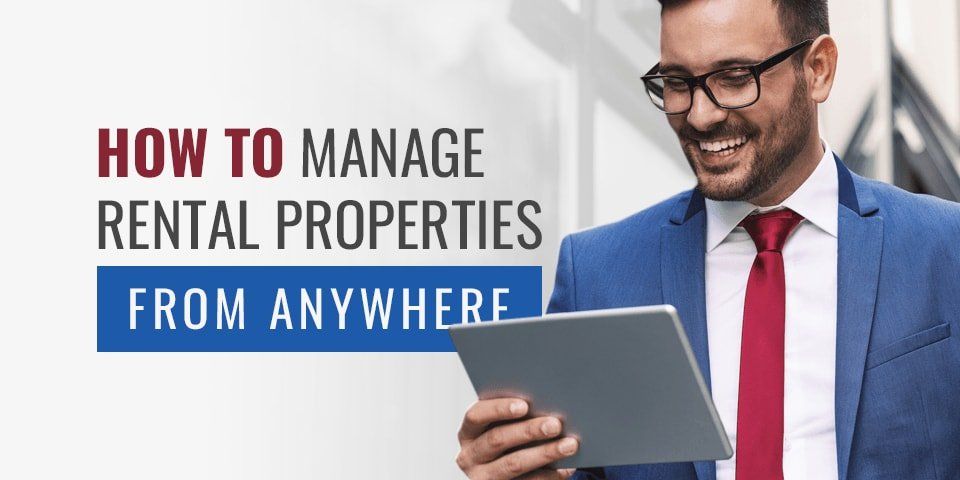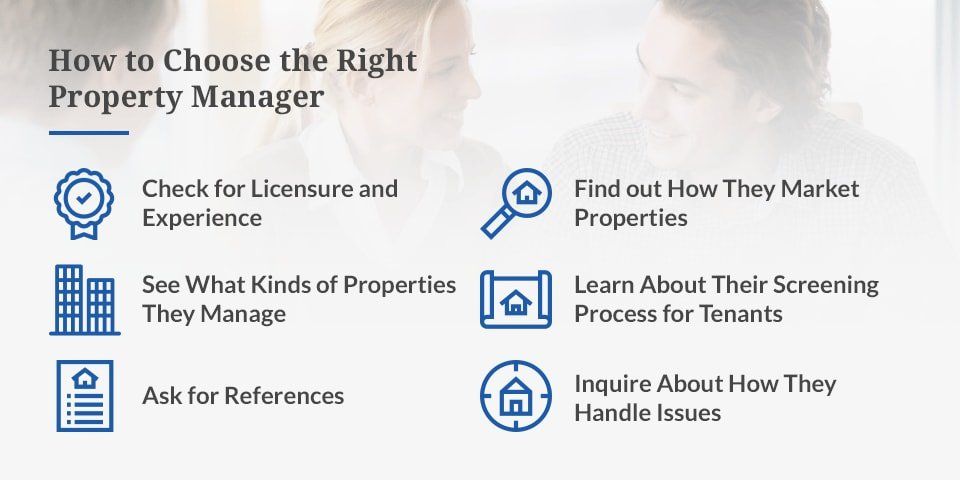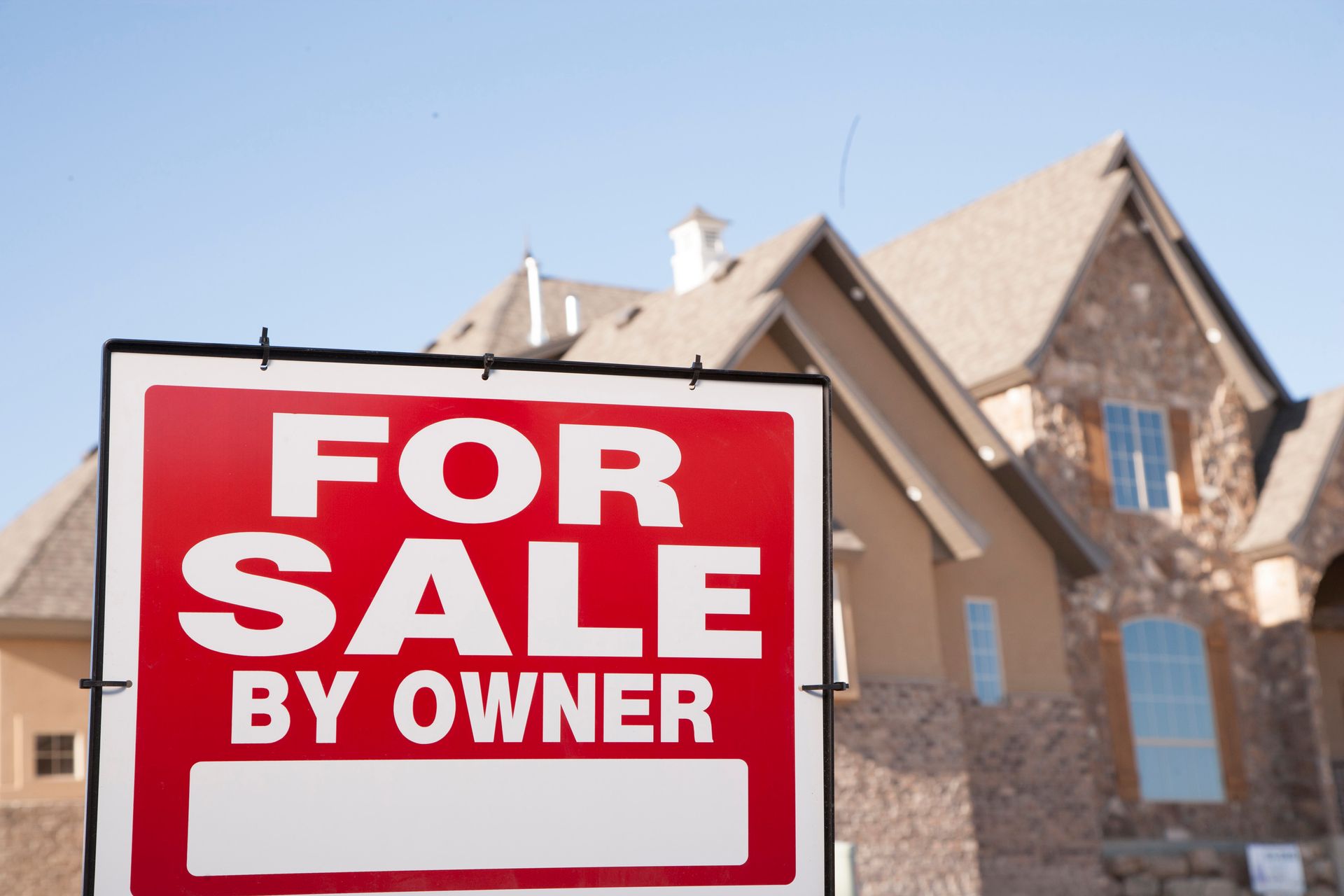How to Manage Rental Properties from Anywhere

Manage Rental Properties From Anywhere
If you're considering investing in rental properties, your first thought may be to keep an eye out for properties for sale nearby. Investing in rental properties close to home can be a great move, but in some cases, you may find that looking for properties in other markets opens up more opportunities for you. Whether you're just considering it or you've already taken the plunge and broadened your property investment portfolio, you may be wondering how you can successfully manage rental properties from a distance.
Investing in rental properties far away from home does come with some complications. After all, you're not nearby to keep an eye on things or to manage the property in person. This doesn't mean you can't still be an excellent landlord, however. With the right approach, you can successfully manage rental properties from anywhere.
Reasons to Invest in Rental Properties Far From Home
With the complications that come with investing in properties in non-local markets, you may wonder why you should consider this option in the first place. Despite the difficulties, there are some great reasons to invest in rental properties that are outside of your city or even state. Here are a few of them:
- More Affordable Markets: You don't have to know much about real estate to know that some markets are far more affordable than others. Especially if you live in a state with a high cost of living, such as California, New York or Massachusetts, you may want to look into investing in properties in more affordable parts of the country. Not only will you save money on your initial purchase in a cheaper market, but you'll also save on costs like taxes and insurance as well.
- A More Diversified Portfolio: The stock market isn't the only type of investment where you want to diversify. When it comes to real estate, there's a real advantage to diversifying your portfolio by investing in properties that are spread out geographically. If an economic or environmental issue in a region where you own a property causes that region's housing market to take a hit, it likely won't be nearly as devastating as it could be if all your properties were in the same market.
- A Future Retirement Home: If you want to eventually live in another part of the country, why not find your dream home there now? Florida is by far the most popular state for retirees to move to, followed by Arizona and North Carolina. If you have an idea of where you'd like to retire someday, you could consider investing in a future retirement home now and paying down the loan principal by renting it out. By the time you retire, your home could be paid for entirely.
Two Main Options to Manage Your Real Estate Portfolio From Anywhere
Just one of the reasons listed above can be enough to convince some investors to purchase rental properties far from home. But then the question becomes, how can you manage that property from afar? To start, there are two main options to consider: self-management and property management. Let's take a brief look at each of these options.
Self-Management
If you self-manage a property, that means you, the owner, also take on the responsibilities of managing day-to-day operations. These responsibilities include initial undertakings like setting your rental rates, preparing a lease, advertising your property and screening tenants. It also includes ongoing duties like collecting rent, checking on the property and having routine maintenance done. Furthermore, it includes taking care of issues that could come up, like repairs, complaints from tenants, conflicts between tenants, broken leases and, in the worst cases, evictions.
Whatever comes up, routine or unexpected, you will be the one to coordinate all necessary operations associated with your rental property and tenants. Self-management allows you to have more control over the way your property is managed and could also save you money. However, self-managing from a distance is no simple task. We'll talk more about how to do that in a moment, but first, let's look at the other primary option for managing properties.
Property Management
If you don't want to self-manage your property, you can hire a property manager to take care of all the responsibilities discussed above. Property management groups have strategic methods in place for managing properties, so you can be fully hands-off if you wish. If you want to be more involved, however, you can also work with your property manager to make sure they run things exactly as you would.
Of course, property managers have to be paid for their services, so this option typically costs you about eight to 10 percent of the rent money you make from tenants. It may also cost you part or all of the first month's rent for new tenants. Though this option does require a financial investment, it can save you a great deal of time and be especially helpful for long-distance landlords who don't have the advantage of living near their properties.
How to Self Manage From a Distance
If you decide to self-manage your property, there are some things you can do to ease the property management process and manage your properties effectively in spite of the distance. First, make sure you understand how to manage real estate properties. Remember that all responsibilities associated with your property fall to you initially, but you can still enlist the help of others and have some mechanisms in place to help you stay on top of things, even from a distance. The following tips should help you do just that:
- Partner With Local Maintenance Workers: You don't want to wait until something goes wrong to begin looking for a local plumber, electrician or another tradesman. If your tenant contacts you to say there's a maintenance issue — especially if it's an urgent one — you want to make sure you have already made arrangements with a nearby worker you can quickly call on to take care of the issue. Forming a partnership with a company or contractor where you commit to using their services can also help you to get a good deal.
- Have Someone You Trust Check on Properties: When you can't be there yourself to check up on your properties and tenants, you need to have someone you trust to do it for you. If you don't know anyone in the area, consider having your most trusted or long-term tenant take on this role. You could offer a rent reduction in exchange for their checking on other units within their same rental property or in other properties. Just make sure they send you a report with any updates, so you have a record of these check-ins.
- Stay in Frequent Contact With Your Tenants: Don't let the adage, "out of sight, out of mind" apply when it comes to your rental properties in other cities or states. Be sure to check in with your tenants on a routine basis to maintain a relationship with them and to make sure all is well. You should also make sure your tenants know to contact you if they need anything and never to bypass you to take matters into their own hands or hire a maintenance worker on their own.
- Create a Web Portal for Tenants: The more you can streamline, the easier and more organized your job will be. Rather than taking phone calls, texts and emails from tenants, set up a website with a contact form and a maintenance request form. You should still give tenants your phone number, however, so they can reach you quickly in the event of an emergency. You can also use this online portal to set up a way for tenants to automate their rent payments.
How to Choose the Right Property Manager
If you decide to hire a property management group instead of managing your properties on your own, then you don't have to worry about partnering with local workers, having someone check on your property, staying in contact with tenants or creating a web portal for them. All of these tasks, along with any others, are passed on to your property manager. Still, you have a role to play initially in choosing the right property manager. As you consider potential property management groups, follow these tips to determine if they're the right fit for you:
- Check for Licensure and Experience: While you may not be required to have a license, in most cases, property managers are required to hold a real estate broker's license or a property management license. In Pennsylvania, for instance, leasing and renting necessitate a broker's license. Check the laws in your state and make sure any property managers you consider are properly licensed. Also, find out how much experience they have managing properties. Ideally, you want a property manager who isn't just licensed, but who also has plenty of experience.
- See What Kinds of Properties They Manage: Some property management groups specialize in certain types of properties. Find out what properties the company manages and see if there's a pattern. It may be that they're very tied to a specific geographical area, like a particular neighborhood, which could be great if your property is in that neighborhood. Or, it may be that they specialize in luxury or budget properties. Try to find a property management group whose niche aligns with your property.
- Ask for References: Some property managers will readily offer you references from landlords they've worked with. If they don't bring it up on their own, ask for these references — and make sure you actually speak with references to find out about their experience working with the property manager. Ask about how responsive the property manager was, how transparent they were and how they did with tenant retention. These are questions you should ask the property manager, too, but it's extremely helpful to get a client's perspective.
- Find out How They Market Properties: In the initial stages of managing a property, advertising the property is an important step to getting it occupied. Find out how a property management groups goes about marketing their properties. Ask whether they use online platforms like social media sites or real estate websites, whether they take out print ads or if they create and post signage. Find out how quickly on average they are able to fill vacant properties.
- Learn About Their Screening Process for Tenants: Of course, filling a vacancy quickly isn't everything. You want to make sure the vacancy is filled by quality tenants. It's essential that property managers have careful methods in place for screening tenants to make sure they only lease to people who will treat the lease and the property with respect. If your property manager takes this stage seriously, then you should avoid issues with tenants, broken leases and evictions.
- Inquire About How They Handle Issues: When issues do come up, find out how the property manager goes about handling them. For instance, if a tenant is late paying rent, how does the property manager respond? What if a tenant complains about their next-door neighbor being too loud? How would the property manager address their complaint? Finally, find out how the property manager would handle serious issues like breaches of contract or — in the worst cases — evictions.
How to Work Successfully With a Property Manager From a Distance
After choosing the right property management group to hire, you still have a role in making sure they live up to your expectations. This is especially important if you have firm opinions on how you would like your properties to be run. Refer to the following tips to help you form a productive ongoing partnership with your property manager:
- Check the Contract Carefully: Your property manager should provide you with a contract that outlines the business agreement between you. It should cover information like how much their services will cost on a regular basis and whether there are additional fees for placing new tenants, how they will handle maintenance and repairs, how you will receive tenants' rent, how a termination of their services would work if you're not satisfied and more. Make sure you understand everything in the contract before signing.
- Negotiate Changes to the Contract: If you're not happy with anything in the contract, negotiate these terms with the property manager. You should end up with an agreement that both parties are happy with. If you would like the property manager to make an exception to the way they usually operate on a certain issue, make sure you're clear on exactly how you would like them to do that and include it in the written contract.
- Respect the Property Manager's Position: Once you have settled on all the arrangements, it's time for you to hand off responsibilities to the property manager. Delegating effectively can only happen if you trust your property manager. If you hire a property manager you trust, then you can enjoy peace of mind knowing that they will handle everything well. Don't interfere in the process by bypassing their position to contact tenants or maintenance workers on your own, unless this is something you've agreed on.
Manage Rentals From Anywhere With Harrisburg Property Management Group
If you have, or will soon have, rentals in the Central Pennsylvania area and are looking for the right property management group you can trust, contact Harrisburg Property Management Group today. You can also learn more about our services online. We are equipped to handle every aspect of managing your property from start to finish so that you can enjoy a stress-free partnership and a consistent return on your real estate investment. We have the market-specific expertise and extensive experience needed to handle your property's management in a way that gives you peace of mind, no matter how far away you are.


















